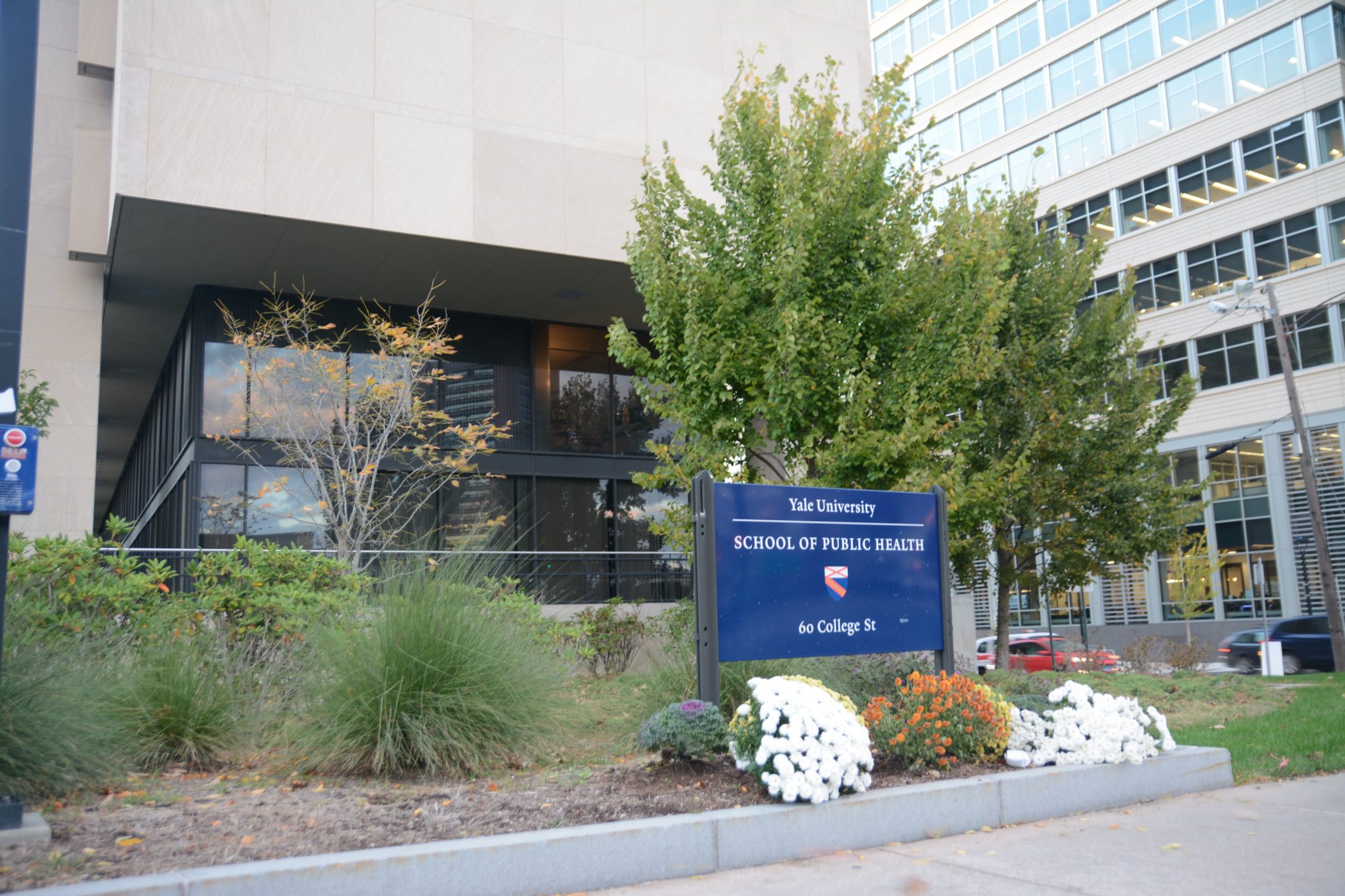
Ngan Vu
The School of Public Health will establish a new health informatics division, SPH Dean Sten Vermund announced in a communitywide email on Thursday. The new division, which is set to open in August, will allow students to pursue a master’s degree in the applied discipline.
Housed under the Department of Biostatistics, the Health Informatics Track will focus on using artificial intelligence and machine learning to improve the reliability and accuracy of electronic medical records. According to Vermund, the health informatics division will become a secondary home for faculty members and students who are interested in combining data science and clinical medicine to positively affect patient outcomes.
“Yale is so strong in this area, with such remarkable experts, that we thought it was a real opportunity for Yale faculty with so much depth in this area to pass on their knowledge,” the SPH dean said. “We’re all believers of the service-education-research triad that anchors Yale’s mission. To not to have a more substantial educational opportunity for Yale students seemed a shame.”
Emergency medicine professor Cynthia Brandt will serve as the division’s director. In addition to her new role, Brandt is currently the director of the Yale Center for Medical Informatics, the director of medical informatics at the Prime Center and a member of the Center for Biomedical Data Science’s Steering Committee.
Brandt hopes to set the division up for success in the future.
“My biggest priorities for the new division are to recruit a diverse, collaborative community of researchers with complementary expertise who share a passion for using informatics to address health challenges, to build the division’s research program and to train others in health informatics techniques through the new Health Informatics master’s program,” she said.
According to Vermund, Brandt’s qualifications stretch even further than the positions she has held. He said that she not only has a strong background in biostatistics and quantitative science, but also has a profound interest in health informatics.
Under Brandt’s guidance, Vermund expects the new division to become a leader in the field.
“As our expertise and opportunities grow, the division will be an academic accelerator for important and innovative research,” he said. “Improving the methods of medical informatics and improving the utility or results of informatics data would be a tremendous success for the division if we can really be something that increases the whole being greater than some of its parts.”
Since health informatics is located at the crossroads of computer science and health care, the division expects to court many different professionals and academics throughout the country.
According to Vermund, three different groups will be most attracted to the field: clinicians, data scientists and outcomes researchers — who include economists, social scientists and health administrators.
“Those who are a little bit more quantitatively focused and computer-oriented may get into the methodologies of how to extract data and how to maximize the utilities of those data. And that’s in some ways the backbone of health informatics,” he said.
While the master’s program and the division have already been approved by both the Graduate School of Arts and Sciences and School of Public Health, the division is currently in the process of hiring faculty to fill key positions. In addition, Vermund said, the School of Public Health is still working out the specifics of the master’s program curriculum.
According to Brandt, the course plan will focus on data mining in public health, databases and clinical information systems, among other topics.
“Students will be equipped with the necessary computational and data-science knowledge, skills and tools to study any public health problem,” she said.
The National Institutes of Health has identified a lack of health information infrastructure as one of the leading problems affecting medical care in the 21st century. Department of Biostatistics chair Hongyu Zhao is confident that the new division will encourage even more growth in the field.
“There is a growing need for health informatics for the School of Public Health and School of Medicine, both for people conducting research in this area and for training the next-generation scientists with this expertise,” he said. “This is largely the result of the rapid accumulation of large and diverse data, relevant for biomedical research.”
Brandt completed a postdoctoral fellowship at the Yale School of Medicine in 1997.
Matt Kristoffersen | matthew.kristoffersen@yale.edu







